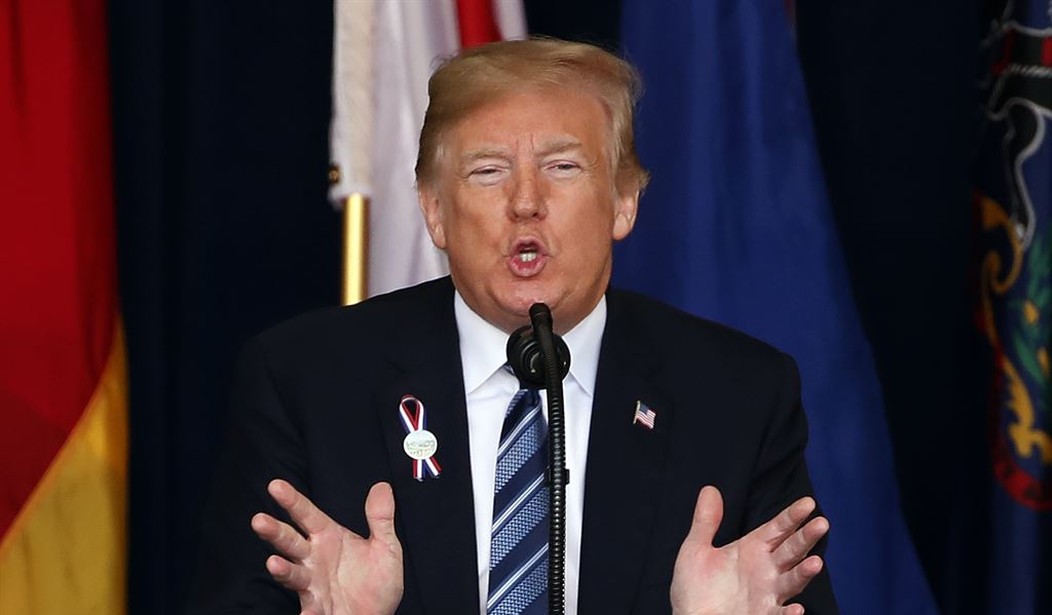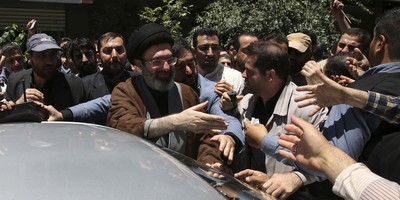Last week, The New York Times published a scathing critique of Donald Trump -- the man and the president. The Times said the critique was written by a senior Trump administration official who insisted on remaining unnamed. This bitter and harsh editorial, which portrays the president as dangerous to the health of the republic and his White House as slouching toward dysfunctionality, has understandably infuriated him.
Trump first accused the Times and its unnamed writer of treason, and then he publicly asked for a Department of Justice investigation to find the writer. Then, to change the subject, he threatened to declassify documents submitted to the Foreign Intelligence Surveillance Court in 2016 -- before he was president -- that he believes were used to commence the Robert Mueller-led investigation of his presidential campaign.
I am deeply disappointed that the president uttered the word "treason." This is wrong under the law and a dangerous charge to make. The Times op-ed is protected political speech and personal opinion. Treason is the only crime defined in the Constitution, thereby preventing Congress and the courts from changing its meaning. It consists only of either waging war against the United States or any of the states or providing aid and comfort to those who are waging such a war.
The president should know that it is nearly impossible to commit treason by expressing an opinion. Even calling for a Nazi victory over the U.S. during World War II -- as hateful and harmful as such speech was -- constituted protected speech and was hardly treasonous.
Preventing a repeat of the long, sordid, barbaric history of treason prosecutions by British monarchs for the expressions of political, personal or trivial opinions about the Crown or the government (Henry VIII once ordered that it was treasonous to make eye contact with him in public, absent his overt invitation) is the basis for its strict constitutional definition.
Recommended
The DOJ investigates criminal acts, not workplace disputes or government leaks of unclassified materials. Had the unnamed Times writer revealed classified materials, there would be a basis for a DOJ investigation, but the president's torment cannot form the basis for one. However, that does not bar the president's lawyers from conducting their own investigation, as the president is surely entitled to senior administration officials who share his goals, confidence and secrets.
The Foreign Intelligence Surveillance Act needs more than exposure; it needs extinction. I have been arguing for 40 years that FISA is unconstitutional. The Fourth Amendment protects the privacy of everyone in the U.S., and it establishes firmly that personal privacy may be pierced by the government only when it has demonstrated to a judge the existence of probable cause of a crime.
Probable cause requires a demonstration under oath that piercing the privacy of a target would more likely than not produce evidence of a crime. And the search warrants signed by judges must "particularly describ(e) the place to be searched, and the persons or things to be seized."
FISA established a lesser standard for piercing personal privacy -- probable cause of communicating with a foreign person (originally an agent of a foreign government, now just any foreign person). That standard -- though unconstitutional -- is obviously easier to achieve than probable cause of a crime.
As well, FISA warrants, many of which permit the bearer to look at and seize vast data, unleash the bearer without particularly describing the places to be searched or the persons or things to be seized. One FISA warrant I saw authorized telephone surveillance of all Verizon customers -- all 115 million of them -- without naming any.
FISA is not only unconstitutional because of its defiance of the Fourth Amendment but also extraconstitutional, because it sets up governmental procedures and even a government court that operate outside the Constitution.
Because it is so much easier to get a FISA search warrant than it is to get a search warrant based on probable cause, many FBI agents cannot resist the temptation to portray their mission as an intelligence one rather than a law enforcement one and get a warrant from the FISA court instead of one from a federal court that follows the Fourth Amendment.
FISA court records are so secret that the judges on the court cannot access them. The judges surrender their mobile phones and all writing materials when they enter their courthouse in D.C. and are frisked when they leave. No transcripts of courtroom dialogue are kept.
I have criticized FISA court judges by characterizing them as clerks. Indeed, any court that grants 99.97 percent of warrant applications, that does not require probable cause of criminal activity as a basis for a warrant and that does not comply with the specificity requirements of the Fourth Amendment is not a court of thinking, liberty-protecting judges faithful to the Constitution. It is a gaggle of clerks.
Much of what the FISA court sees is raw intelligence -- transcripts of conversations and personal data such as health, legal and financial records intercepted by intelligence agents. In some cases, the court sees boring nonsense. In some cases, it sees data that agents have risked their lives to obtain.
The president needs to know that the revelation of raw intelligence data -- which would be portrayed in the media as being revealed for personal or political gain -- would strike at the heart of the work of some in the intelligence community and that they might strike back.
The president also needs to be reminded of his oath to uphold the Constitution -- which includes the rule of law. The United States is the freest and most prosperous country in history. But without the rule of law and its respect for constitutional fidelity, personal liberty, private property and legal norms, the U.S. would be just a beautiful piece of real estate.

























Join the conversation as a VIP Member